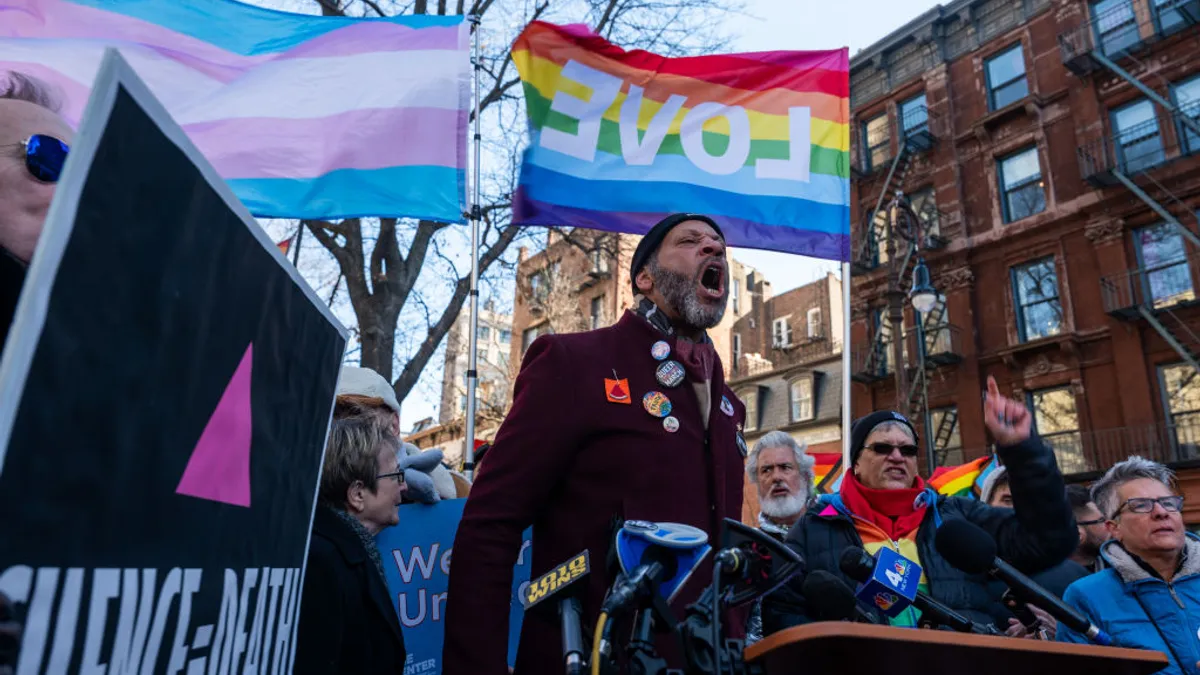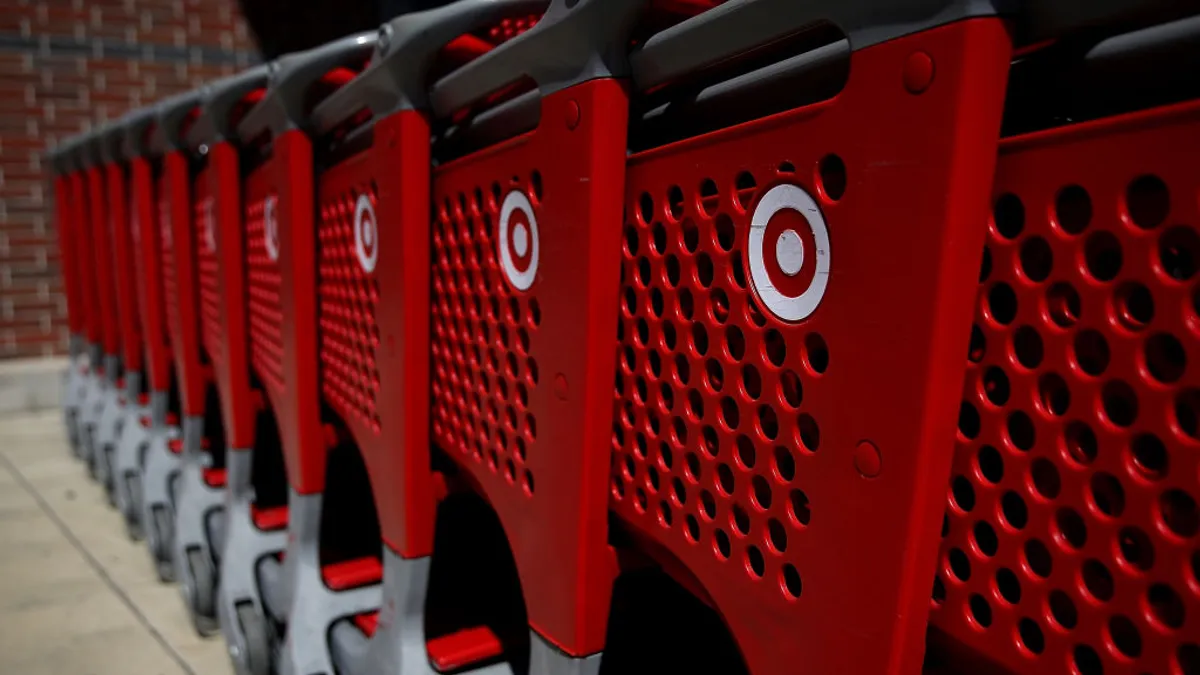As national calls for racial justice rose during the summer, many companies committed unprecedented amounts of support for racial equality. Organizations evaluated diversity and inclusion practices at the urging of Black employees, their allies and the general public, and some took action. Now, months later, a panel of executive leaders gathered to discuss the strategic commitments employers made to combat the systematic challenges facing the Black community — and the lessons learned.
The discussion was part of the "Beyond Business" lecture series, moderated by Erika James, dean of The Wharton School at the University of Pennsylvania, on Nov. 10.
"Companies really need to think about stepping back and evaluating all of their practices, their policies, their philanthropy and their investments in communities," Dalila Wilson-Scott, EVP, chief diversity officer at Comcast Corporation and president of the Comcast NBCUniversal Foundation at Comcast, said. The "powerful" shared experience of "witnessing George Floyd's murder" along with the health and economic crisis caused by the COVID-19 pandemic made companies acknowledge that "we could do better, despite having longstanding records of diversity and inclusion," Wilson-Scott said.
In unprecedented ways, employees shared "stories of microaggressions and outright racism and how that's impacted their work life," she said. "So, the openness and accountability is on companies to step up in this moment; and that's both inside of our walls, as well as extending some of that to our communities," Wilson-Scott said.
But James asked: Were the philanthropic endeavors a "symbolic moment for companies to feel better about themselves;" or is there a real sustained change on the horizon?
"I have noticed that it's about much more than just the philanthropic or the capital contribution that corporations have made," Wes Moore, CEO of Robin Hood, a nonprofit dedicated to fighting poverty, said. Companies are understanding that "there actually has to be a measure of shared action." Effective companies are able to look at their roots, and ask the question, "‘How do we use every single lever at our disposal in corporate America?’" Moore said.
"There's a hopefulness that I have now that, truthfully, I don't know that I've always had," Moore said. "This moment is leaving me tentatively inspired by the things that we're seeing."
Although companies are pledging support to the Black community, "they're still struggling in many cases with allegations of discrimination or challenges with achieving justice and equity within their own firms," James said. For example, in June, Marilyn Booker, a former head of diversity at Morgan Stanley, filed a lawsuit against the firm alleging race discrimination and retaliation. James asked: Is it possible for organizations to reconcile a disconnect between wanting to do the right thing, yet struggling with how to do the right thing?
"As we came into this moment, there was no organization that was perfect," Carla Harris, vice chairman and managing director at Morgan Stanley, said. "And I would argue that there was no organization that had even matured, frankly, around the diversity, equity and inclusion [DEI] conversation. Therefore, you're already vulnerable to things that you did in the past and things that you might be doing right now." These crises served as "a powerful motivator or instigator" for companies to advance work in the DEI space, Harris said.
There are two reasons that make this moment in time unique, she said. Firstly, millennials and Gen Zers have stepped up and said "no more," Harris explained. "They are looking at people in positions of power who are running corporate America and saying, 'Really? You guys had 50 years to get this right and we're still dealing with this? How can that be?' All you have to do is look at who has been in the streets [protesting] as your evidence; not that [baby] boomers and Gen Xers have not been. But who has really, for well over 100 days, been keeping this conversation alive?"
Secondly, it used to be the case that companies had three constituents — shareholders, employees and customers, Harris said. "But now there's a fourth constituent called community; and it too, has a powerful tool — social media," she said. "You can have massive brand degradation within seconds; you could lose billions of dollars of market cap."
Technology has made a lot of the issues that have been happening for years come to the forefront, Harris said. During the civil rights movement in the 1960s, many "were horrified to see people getting gunned down or mowed down with water hoses or with dogs," she said. And now instances of racial injustice can be on a person’s smartphone in seconds. Companies want to attract and retain millennials and Gen Zers, but these generations want their workplace to align with their values, Harris said.
"I have been involved [in] recruiting, mentoring or sponsoring and certainly using my voice on behalf of diversity and inclusion for the last 30 years," said Harris, who has been at Morgan Stanley since 1987. In the last eight months, Harris has been part of the firm’s evolved partnerships with historically Black colleges to enhance talent pipeline programs, support of Black banks and "the discussion about the inequity of the distribution of capital to women and multicultural entrepreneurs," she said.
In the early 1990s, many corporate leaders thought about diversity from the perspective that it’s the right or moral thing to do, but not really from a commercial perspective, Harris said. Decades later, "people are starting to really think that it is a part of the strategy," she said. "It is a part of being able to innovate [and] a part of any organization's future."
During times of crisis, leaders who are attentive to employees’ needs create better outcomes, according to research.
"I think for Fortune 50 companies, what’s always been true is that leadership is critical," Wilson-Scott said. But companies like Comcast, whose products "touch and influence" many people, know that at times there must be a collaborative effort between organizations, Wilson-Scott said. "In moments of crisis, like we're in now, we need to be thoughtful about public-private partnership," she said. "We need to be thoughtful about bringing our other private-sector colleagues around the table to understand what we can do and how we should be doing it differently."





















